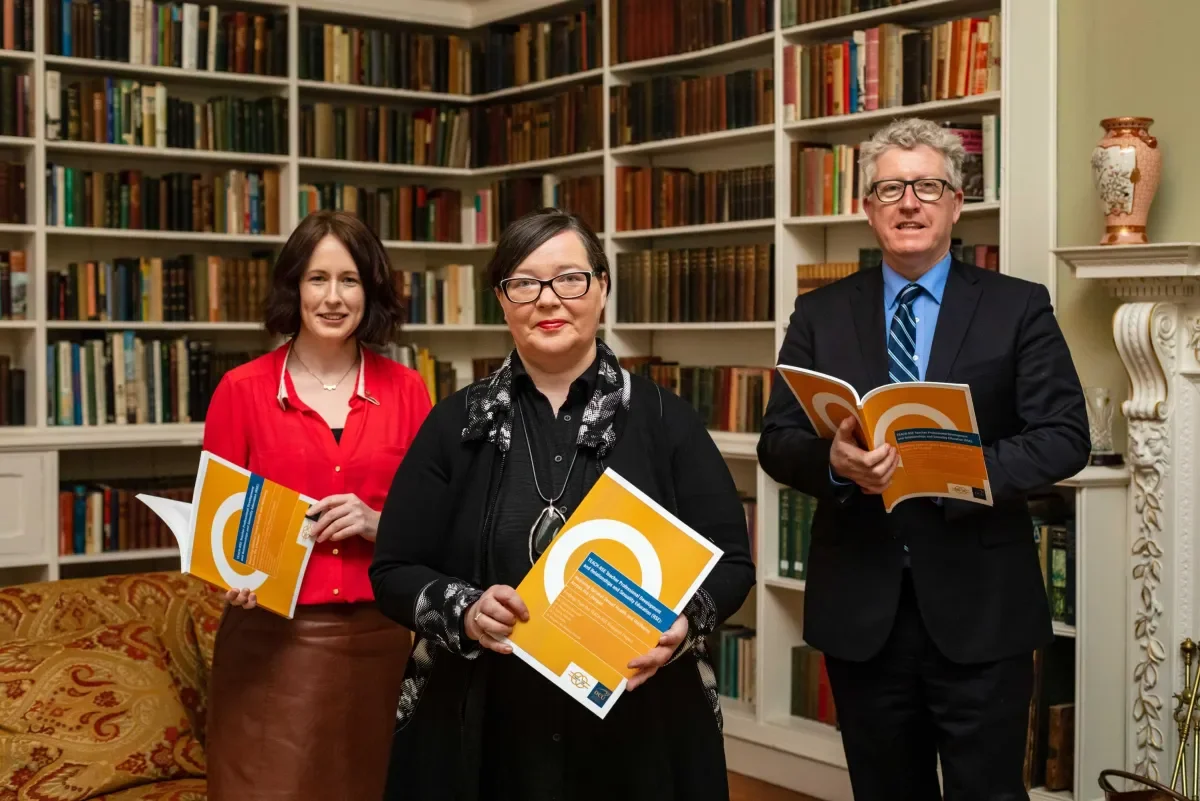

DCU report highlights the need to strengthen preparation for Relationships and Sexuality Education (RSE) in Initial Teacher Education
Positive sexual health and wellbeing, together with sexuality education, are essential to the realisation of fundamental human rights and sustainable human development. The formal education system is a significant site of universal sexuality education and teachers play an integral role in enabling children and young people’s right to high-quality, accurate, inclusive, and comprehensive sexuality education.
A new study by Dublin City University’s Institute of Education, the first of its kind in an Irish context, examined Relationships and Sexuality Education (RSE) in the context of Initial Teacher Education (ITE).
It found that Student Teachers and Initial Teacher Educators identified RSE as a right of children and young people. The study found that almost two thirds of student teachers perceived that they were not receiving enough input on RSE as part of their ITE programme. Teacher Educators emphasised the relevance of RSE but noted the lack of status and visibility of the subject across the levels of the education system, including teacher education.
Key findings
- 94% of the student teachers surveyed reported an intention to teach RSE once qualified.
- 61% felt the amount of input they had received in relation to RSE was ‘not enough’.
- Teacher Educators called for an enhancement of the status of RSE across the Education system generally, and specifically in Initial Teacher Education (ITE) and continuing teacher professional development.
Recommendations
Based on the empirical findings and consultations with stakeholders, a number of recommendations are made, including;
- RSE provision in ITE should be conceptualised as holistic, comprehensive, inclusive, rights-based and developmental.
- Teacher professional learning and development for RSE should be provided as a continuum with a model of core plus elective/subject specialism at ITE and further, specialist teacher professional development programmes post-ITE.
- At ITE programme level, adopting a multi-dimensional approach to address student teachers’ content knowledge of, pedagogical skills in, and attitudinal dispositions toward RSE provision ensuring a clear pathway for graduate teachers.
- System-wide, research-informed, and systematically reviewed teacher professional learning and development standards for RSE provision in ITE.
The study, TEACH-RSE Teachers Professional Development and Relationships and Sexuality Education (RSE): Realising Optimal Sexual Health and Wellbeing across the Lifespan, was led by Dr. Catherine Maunsell and Dr. Ashling Bourke, supported by their Research Team of Dr. Aisling Costello, Dr. Claire Cullen and Dr. Malgosia Machowska-Kosciak. The study was funded by an Irish Research Council Coalesce Award, supported by the HSE Sexual Health and Crisis Pregnancy Programme, Health and Wellbeing, Research and Strategy.
Speaking about the report, Dr. Catherine Maunsell said
“It is crucial that teachers are adequately prepared to provide comprehensive, age-appropriate, inclusive and effective sexuality education to children and young people in our 21st century classrooms.
Our report recommendations provide an evidence-based, stakeholder-informed foundation for policy and practice development and leadership in relation to RSE for teachers into the future.”
Dr. Ashling Bourke said
“Children and young people have a right to high-quality, inclusive, and comprehensive sexuality education. Initial Teacher Education and continuing professional development is critical to building teachers’ confidence and competence in the implementation of RSE in schools.
Our research has shown that both student teachers and teacher educators are committed to the delivery of RSE yet at the same time acknowledge a number of challenges to its provision. The recommendations for the report include the need for professional standards and continuing professional development to ensure all children and young people receive school-based comprehensive, inclusive, rights-based RSE.”
For further information visit dcu.ie/teach-rse
